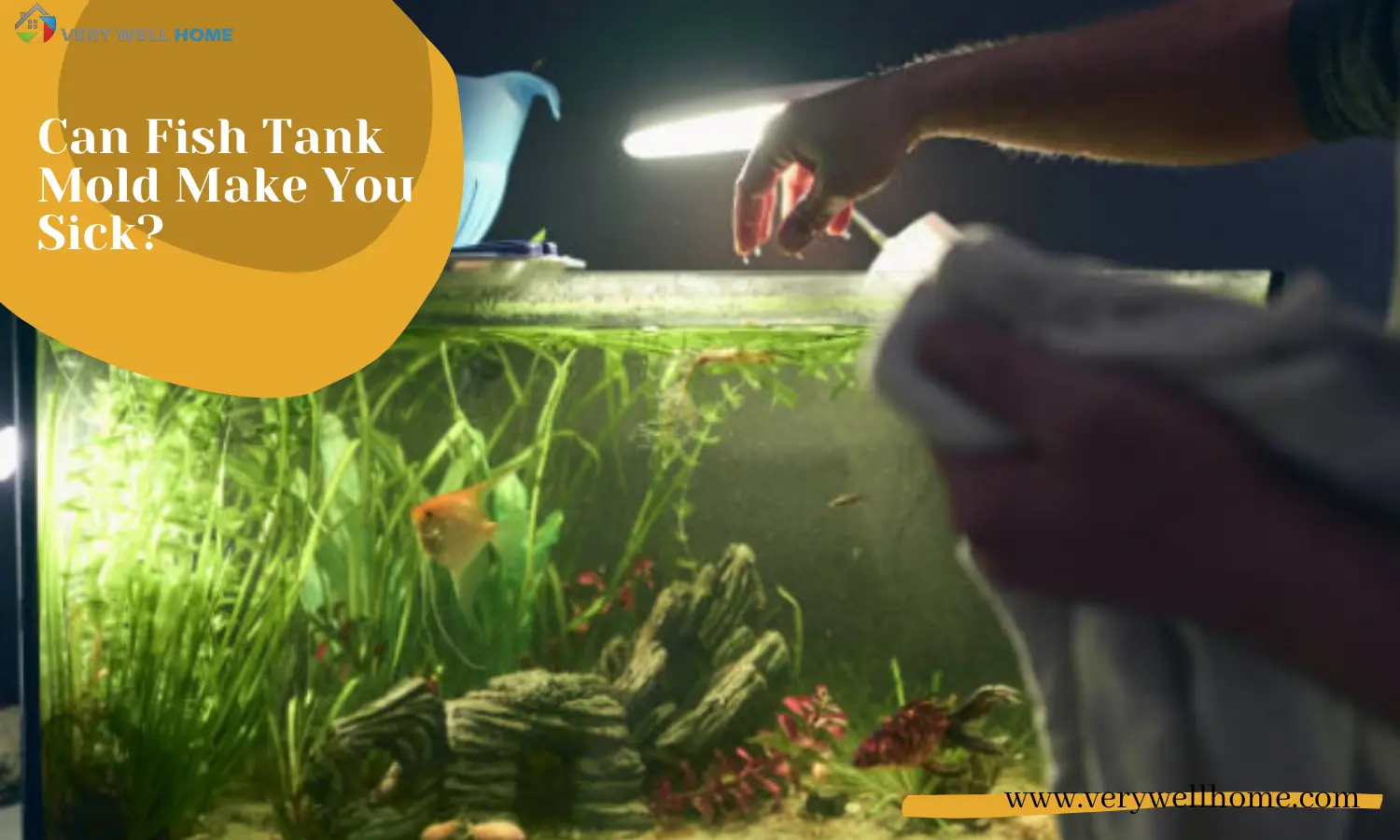Mold can be a severe health hazard and can grow in any environment with the right conditions. When mold grows, it releases spores into the air, which you can breathe in. Some people are more susceptible to mold than others and may experience health problems breathing in mold spores. This blog post will discuss whether fish tank mold can make you sick and what you can do to prevent it from growing in your home.
Related Post: Overall Best Air Purifiers
Related Post: Best Air Purifier for 1000 Square Feet
Related Post: Does Windex Kill Mold and Mildew

Can Fish Tank Mold Make You Sick?
Although fish tank mold may seem harmless at first glance, it can cause many health problems if left unchecked. Most commonly, fish tank mold is an allergen, causing respiratory issues such as nasal congestion and sinusitis in individuals who are sensitive to the fungus. In severe cases, fish tank mold can even lead to asthma attacks and other respiratory conditions.
Additionally, research has shown that aquarium black mold may also be responsible for persistent headaches or migraines. Ultimately, it is essential to keep fish tanks clean and treat any fish tank mold that develops quickly to prevent significant health issues.
What Do You Do If Your Fish Tank Has Mold?
If you notice mold in your fish tank, there are several steps you can take to eliminate it.
First, you should try to reduce the humidity level in your aquarium. This can be done by adding a small airflow device, such as an airstone or a pump.
Second, you may consider applying a mold inhibitor product to your fish tank. These products work by creating a barrier between the mold and the water in your aquarium, helping to prevent further growth.
Remove any affected items from the tank. Once these items have been removed, you’ll need to clean the tank thoroughly with a mild bleach solution.
Be sure to rinse the tank well afterward to remove any residual bleach. If the mold persists, you may need to increase the amount of air circulation in the tank or lower the water level.
If all else fails, you may need to drain your aquarium entirely and clean out any remaining mold manually using a scrub brush and diluted white vinegar solution.
What Are The Signs Of Mold Growth?
There are several signs that can indicate mold growth in an aquarium. These include:
- Visible mold growth or discoloration on the inner surfaces of your fish tank
- A strong, musty odor coming from your aquarium
- Reduced water quality, such as murky water containing slime or algae
- Increased accumulation of debris inside the aquarium, including dead fish or plant matter
Typically, if you notice any of these signs, it’s best to prevent the mold from spreading and causing further damage immediately.
Can Air Purifier Help To Prevent Growth Of Mold In Aquarium?
Air purifiers can be an effective way to prevent mold growth in aquariums. Aquariums are susceptible to mold growth due to the high humidity levels typically present within them and the presence of organic material that can provide both nutrients and a suitable environment for fungal growth.
However, when equipped with an air purifier, tank owners can remove mold-causing moisture from their tanks and reduce the overall air temperature to inhibit fungal growth. Furthermore, air purifiers can help address existing black mold issues by directly targeting spores and removing them from the air before they take root in the aquarium.
Overall, using an air purifier is a highly effective strategy for keeping aquariums healthy and free from unwanted mold growth.
Conclusion
Fish tank mold can cause a range of health problems if left unchecked. Most commonly, fish tank mold is an allergen, causing respiratory issues such as nasal congestion and sinusitis in individuals who are sensitive to the fungus. In severe cases, fish tank mold can even lead to asthma attacks and other respiratory conditions.
Additionally, research has shown that aquarium black mold may also be responsible for persistent headaches or migraines.
Ultimately, it is important to keep fish tanks clean and treat any fish tank mold that develops quickly to prevent significant health issues.

Danny is a passionate writer who loves to share his knowledge about air purifiers. He’s been writing for 10 years, and he’ll share all that experience with Very Well Home viewers to help you make the best decision when it’s time to buy an appliance!





![Best Air Scrubber for Mold: Top 9 Picks You Can Buy In [y] Best Air Scrubber for Mold](https://verywellhome.com/wp-content/uploads/2023/09/Best-Air-Scrubber-for-Mold-150x150.jpg)